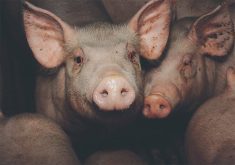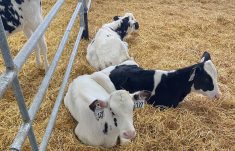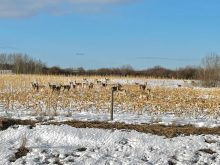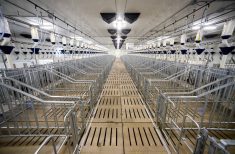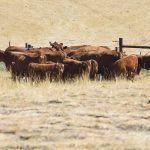Animal advocacy group Animal Justice has launched its latest salvo in the horse for slaughter debate.
In a Feb. 28 release, the group criticized a horse farm in northwestern Manitoba for what Animal Justice says is a workaround to meet the letter of Canada’s live horse export regulations around the maximum window animals can be shipped without rest, food and water.
The advocacy group argues, however, that while helping to comply with regulations, the new practice may increase stress on the horses.
Read Also
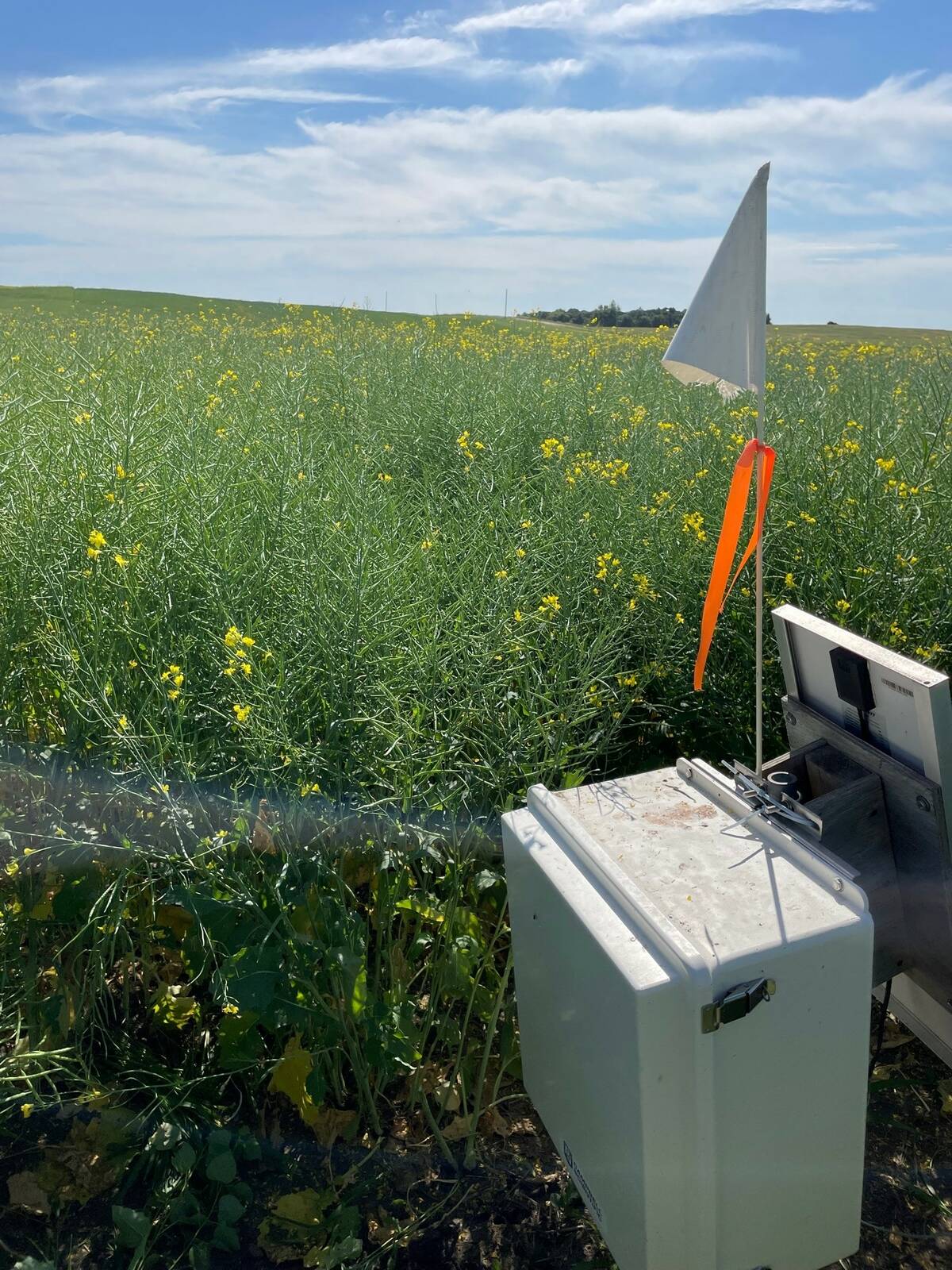
Where’s the water? RISMA knows
National soil moisture sensor network gives real-time data for Manitoba farmers fighting more frequent drought or flood.
WHY IT MATTERS: The air export of Canadian horses for slaughter has been a point of contention between animal rights and welfare advocates and industry, who say arguments against the practice are based on emotion rather than reality.
Carolyle Farms, located near Swan River and which exports live horses destined to be fattened and slaughtered in Japan, has attracted flak from Animal Justice before.
The group has been tracking shipments from the farm for several years.
The farm made headlines a year ago, when Animal Justice launched a rare private prosecution, based on a December 2022 shipment that the group said originated at Carolyle Farms and exceeded the 28-hour transportation limit between feed, water, and rest. That air shipment, which was meant to include a rest stop in Alaska, was diverted due to weather and, by the time the plane landed in Seattle, the group argued, the horses had been in transit too long.
Animal Justice, along with several other groups, lodged a complaint with the Canadian Food Inspection Agency following the shipment. After the CFIA did not take further action, Animal Justice moved forward with private prosecution.
They brought three charges forward. A Manitoba judge later threw out the charge of exceeding the time limit, as the CFIA had been consulted in discussions around the shipment when weather issues came up. A provincial charge of causing distress to animals was likewise dropped on jurisdictional issues. A charge of failing to have a contingency plan was left to stand.
As of March 6, 2025, those proceedings were still ongoing.
“We’re working to set trial dates as soon as we possibly can,” said Kaitlyn Mitchell, director of legal advocacy at Animal Justice.
Changing practices
According to the newest February release, Animal Justice’s investigators noted changed shipment practices on the part of Carolyle Farms. The last two shipments tracked by the group diverted shipment to a feedlot near Winnipeg. Horses were unloaded for the night, then reloaded the following day and completed the trip to the airport.
“For horses shipped from Manitoba to Japan, ‘resting’ them overnight closer to the airport before loading them for the long flight to Japan may help comply with the letter of the law. However, it would do little to improve the horses’ welfare in practice,” United Kingdom-based animal welfare consultant Moira Harris was quoted as saying in the Feb. 28 release.
“It will take them some time to recover from stressful road transport. So while they would technically be able to eat, drink and rest in the temporary feedlot, in reality, they are unlikely to take advantage of this.”
Harris added that the most stressful part of the journey for the horses is the loading and unloading.
“Introducing an additional stop within the journey could further disrupt the horses’ behaviour, increase their stress and reduce their welfare, compared to an uninterrupted trip. This seems to be an ill-informed change that takes no account of the horses’ physiology or normal behaviour.”
Carolyle Farms could not be reached for comment as of press time.
Puzzling response
Jennifer Woods, a livestock auditor who specializes in animal transportation, says she finds Animal Justice’s latest complaints against the Manitoba horse farm puzzling.
“This is what the activists were asking for; they complained the horses need feed, water and rest at more frequent intervals. That is what the producer did,” she said. “It appears that (Animal Justice) are angry that the producer did the right thing. It makes no sense at all.”
Canada’s transportation regulations are based on humane treatment of livestock, regardless of the animal’s destination, she said. Under current rules, horses, pigs, and chickens are all subject to a 28-hour limit for food water and rest. Cattle are allowed a 36-hour window.
Woods suggested that the issue may be less about trying to improve animal welfare for horses being shipped, but more about trying to completely eliminate the air transport of horses exported for slaughter.

Pushing against air export
Animal Justice has taken taken a general stance against air export of horses bound for the meat market.
Mitchell criticized what she said is the profit-focused nature of the horse export industry. Regardless of how the journey is broken up, she said, there is no way to realistically make a journey of that scope humane for the animals.
“Instead of addressing the suffering these horses endure, exporters seem more focused on finding loopholes to keep shipments going,” she said. “It’s long past time for the federal government to finally end this cruel practice.”
“That’s been our position all along,” she added. “Especially if you’re going to ship this many horses at once. We’re not talking about one or two show horses going overseas.”
Nationally, the fight’s most recent front line has been debate over Bill C-355, a private member’s bill that was on the floor prior to Parliament being prorogued earlier this year. The bill would end the practice of exporting live horses for slaughter by air. Mitchell expressed support for the bill.
Woods was among those speaking on behalf of those opposing Bill C-355 at a parliamentary committee meeting last year.
It was her view that, as horses are often seen as companion animals, the issue is emotionally charged, when regulations should be applied evenly, based on facts.
“I’m not here to debate whether horses should be consumed as a protein product,” said Woods at the time, “But I think everybody should be in agreement that if we’re going to create a regulation or ban an agricultural activity, it should actually be based on fact, not on emotion.”
With Bill C-355 now facing headwinds with Parliament being prorogued, Mitchell said she would consider regulatory change a sufficient alternative.
“You can amend regulations even during prorogation,” she said. “So, all we really need is a new regulation that says no exporting horses if the purpose is for slaughter or for fattening.”
Animal Justice has sent letters to the CFIA and Manitoba’s Chief Veterinary Officer advising them of their concerns, but to date, Mitchell said they’ve received no substantive response from either.




